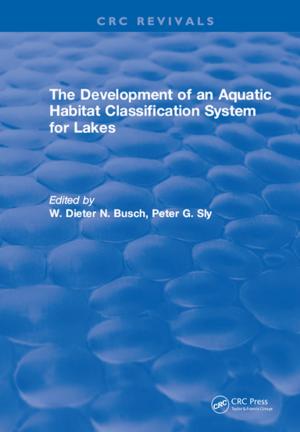Botanical Pesticides in Agriculture
Nonfiction, Science & Nature, Science, Biological Sciences, Entomology, Botany, Technology, Agriculture & Animal Husbandry| Author: | Anand Prakash, Jagadiswari Rao | ISBN: | 9781351463188 |
| Publisher: | CRC Press | Publication: | February 2, 2018 |
| Imprint: | CRC Press | Language: | English |
| Author: | Anand Prakash, Jagadiswari Rao |
| ISBN: | 9781351463188 |
| Publisher: | CRC Press |
| Publication: | February 2, 2018 |
| Imprint: | CRC Press |
| Language: | English |
Due to the prohibitive cost of synthetic pesticides and the problems of environmental pollution caused by continuous use of these chemicals, there is a renewed interest in the use of botanicals for crop protection. Agricultural entomologists, nematologists, and pathologists the world over are now actively engaged in research into the use of plants to fight agricultural pests and diseases, and to reduce the losses caused by them.
Botanical Pesticides in Agriculture reviews the research on botanical pesticides used to combat losses due to pests of agricultural importance, with special attention focused on the use of higher plants. This book will serve as the baseline reference work for future research, and many of the botanicals discussed, such as neem, bael, begonia, pyrethrum, tobacco, karanj, and mahuwa, may become integral parts of pest control programs currently being developed. It is believed that botanical pesticides will minimize the undesirable side effects of synthetic pesticides and help preserve the environment for future generations.
Due to the prohibitive cost of synthetic pesticides and the problems of environmental pollution caused by continuous use of these chemicals, there is a renewed interest in the use of botanicals for crop protection. Agricultural entomologists, nematologists, and pathologists the world over are now actively engaged in research into the use of plants to fight agricultural pests and diseases, and to reduce the losses caused by them.
Botanical Pesticides in Agriculture reviews the research on botanical pesticides used to combat losses due to pests of agricultural importance, with special attention focused on the use of higher plants. This book will serve as the baseline reference work for future research, and many of the botanicals discussed, such as neem, bael, begonia, pyrethrum, tobacco, karanj, and mahuwa, may become integral parts of pest control programs currently being developed. It is believed that botanical pesticides will minimize the undesirable side effects of synthetic pesticides and help preserve the environment for future generations.















